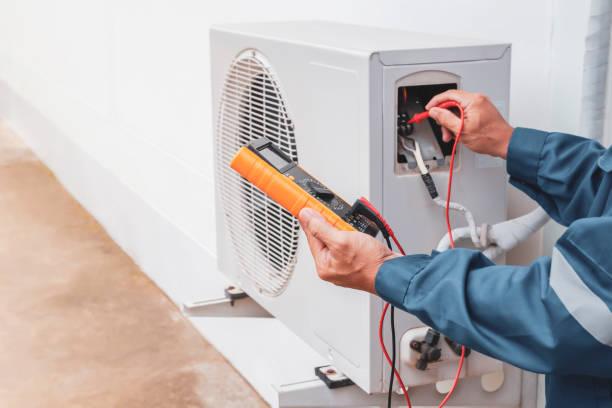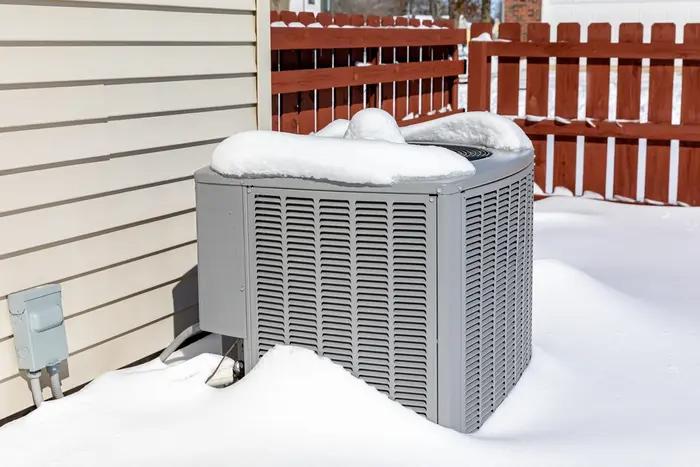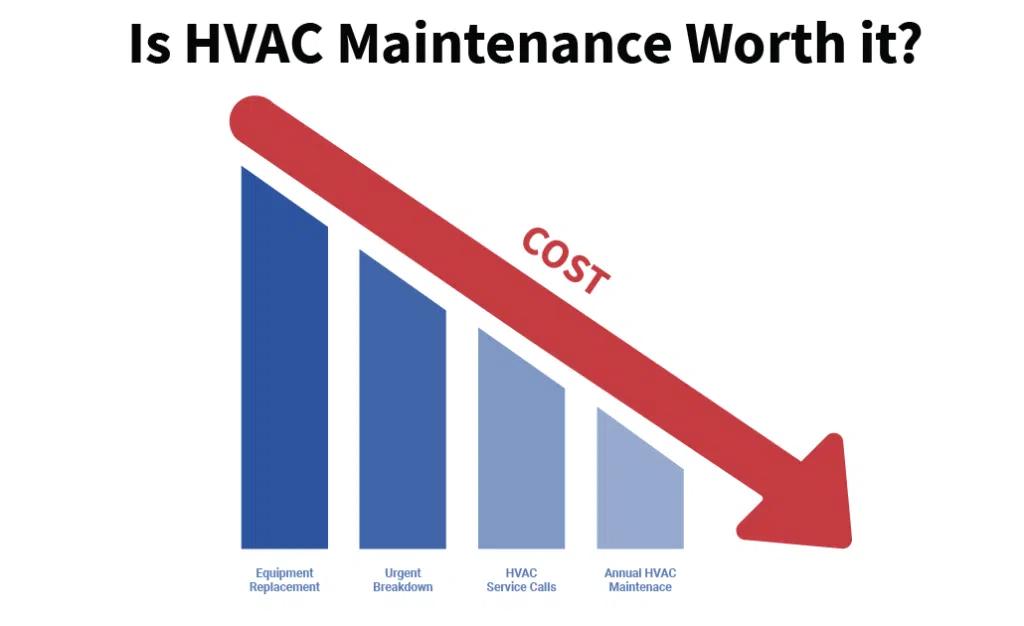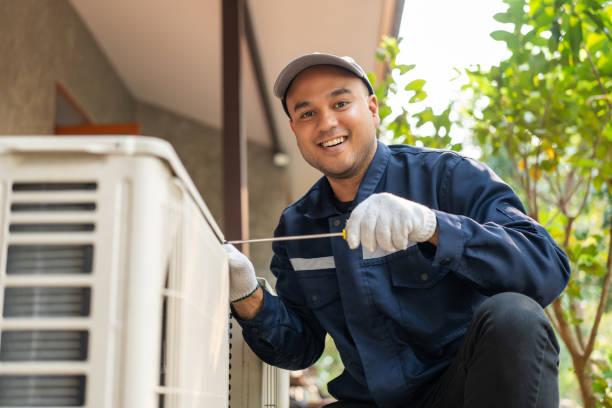Houston’s subtropical climate presents unique challenges for air conditioning systems, with temperatures soaring above 100°F in summer and humidity levels consistently above 70%. Your AC system works harder here than almost anywhere else in the United States, making seasonal maintenance not just recommended—but essential for system longevity and energy efficiency. Without proper seasonal care, Houston homeowners face average repair costs of $347 per service call and potential system failures during peak demand periods when replacement units are scarce and expensive.
This comprehensive guide provides expert seasonal AC repair and maintenance tips specifically tailored for Houston’s demanding climate, helping you maximize system performance while minimizing costly emergency repairs throughout the year.
Why Seasonal AC Maintenance Matters More in Houston
Houston’s climate creates a perfect storm of conditions that stress HVAC systems beyond normal capacity. The city experiences over 100 days annually with temperatures above 90°F, combined with humidity levels that make your AC work 30% harder than in drier climates. According to the National Weather Service, Houston ranks among the top five most challenging cities for HVAC systems in the continental United States.
Seasonal maintenance becomes critical because Houston systems operate under extreme conditions for extended periods. While northern climates may give AC units several months of rest, Houston systems often run continuously from March through October. This extended operation cycle accelerates wear on components and increases the likelihood of unexpected failures.

Energy efficiency data from the Department of Energy shows that properly maintained AC systems in Houston use 15-20% less energy than neglected units. With the average Houston household spending $2,000+ annually on cooling costs, seasonal maintenance can save homeowners $300-400 per year while extending system life by 5-7 years.
Spring AC Preparation: March Through May Setup
Essential Spring Maintenance Tasks
Spring represents the most critical maintenance window for Houston AC systems. As temperatures begin climbing toward summer extremes, your system needs thorough preparation to handle the upcoming demand. Professional HVAC technicians recommend completing these tasks before temperatures consistently exceed 80°F:
- Filter Replacement and Cleaning: Install high-efficiency filters rated MERV 8-11 to handle Houston’s pollen and humidity
- Coil Cleaning: Remove accumulated debris and buildup from evaporator and condenser coils
- Refrigerant Level Check: Verify proper refrigerant charge and identify potential leaks
- Electrical Connection Inspection: Tighten connections and test all electrical components
- Thermostat Calibration: Ensure accurate temperature readings and optimal programming
- Ductwork Inspection: Check for leaks, damage, or blockages in the duct system
Houston-Specific Spring Challenges
Houston’s spring season brings unique maintenance considerations. Severe weather events, including hailstorms and high winds, can damage outdoor units and ductwork. Additionally, the city’s high pollen count during spring months can clog filters and coat coils more rapidly than in other climates.
The transition from heating to cooling mode also stresses systems that may have developed issues during winter dormancy. Professional AC repair services often identify problems during spring startup that went unnoticed during cooler months.
Summer Peak Performance: June Through August Optimization
Managing Peak Season Demands
Summer maintenance in Houston focuses on sustaining peak performance during the year’s most demanding period. With outdoor temperatures regularly exceeding 95°F and heat index values above 110°F, AC systems operate at maximum capacity for extended periods.
Critical summer maintenance includes:
- Monthly Filter Checks: Houston’s high humidity and dust levels require more frequent filter attention
- Condenser Unit Cleaning: Weekly removal of debris, grass clippings, and accumulated dirt
- Drainage System Maintenance: Clear condensate drains to prevent water damage and humidity issues
- Performance Monitoring: Track energy usage and cooling performance for early problem detection
- Emergency Preparedness: Ensure backup plans for potential system failures during peak demand

Energy Efficiency During Peak Season
Houston’s summer electricity demand peaks create additional costs for homeowners. Time-of-use pricing during peak hours (typically 2 PM to 7 PM) can increase cooling costs by 40-60%. Optimal system maintenance ensures your AC operates at peak efficiency when electricity costs are highest.
Professional AC tune-up services during early summer can improve efficiency by 10-15%, translating to $150-250 in monthly savings during peak season months.
Fall System Preparation: September Through November Transition
Preparing for Temperature Fluctuations
Houston’s fall season presents unique challenges with dramatic temperature swings and increased humidity from Gulf moisture. Systems must adapt to cooling needs during hot afternoons and potential heating requirements during cooler mornings.
Fall maintenance priorities include:
- Comprehensive System Inspection: Assess wear and damage from summer’s intensive operation
- Heat Pump Preparation: Service heating components for potential winter use
- Ductwork Sealing: Address leaks discovered during peak cooling season
- Thermostat Programming: Adjust settings for variable fall temperatures
- Component Replacement: Address worn parts before winter demands increase
Hurricane Season Considerations
Houston’s fall maintenance must account for potential hurricane impacts through November. Post-storm inspections become critical, as high winds and flooding can damage outdoor units, compromise ductwork, and affect electrical systems.
Emergency preparedness includes securing outdoor units, protecting electrical connections, and establishing relationships with reliable repair services. Many Houston homeowners schedule fall maintenance specifically to address any storm-related damage before winter heating needs arise.
Winter HVAC Considerations: December Through February Care
Heating System Maintenance
While Houston winters are relatively mild, occasional freezes and sustained cold periods stress heating systems that receive limited annual use. Winter maintenance focuses on heating components and protection against freeze damage.

Winter care includes:
- Heating Element Testing: Verify proper operation of heat pumps and auxiliary heating
- Gas Connection Inspection: Check furnace gas lines and connections for safety
- Pipe Insulation: Protect refrigerant lines and plumbing from freeze damage
- Air Handler Maintenance: Service indoor units that work harder during heating mode
- Humidity Control: Adjust for winter comfort and indoor air quality
Freeze Protection Strategies
Houston’s occasional hard freezes can damage unprotected HVAC components. Proper winter maintenance includes insulating exposed pipes, covering outdoor units during extreme cold, and ensuring heating systems function efficiently to prevent frozen indoor components.
Professional Maintenance vs. DIY: Making the Right Choice
Tasks Homeowners Can Handle
Several seasonal maintenance tasks fall within typical homeowner capabilities, particularly basic upkeep that extends professional service intervals:
- Monthly filter replacement during peak seasons
- Outdoor unit cleaning and debris removal
- Thermostat battery replacement
- Basic visual inspections for obvious damage
- Condensate drain clearing with simple tools
When Professional Service Is Essential
Complex maintenance tasks require professional expertise and specialized equipment. Houston’s demanding climate increases the importance of professional service for:
- Refrigerant testing and adjustment
- Electrical component inspection and repair
- Internal coil cleaning and chemical treatment
- Ductwork inspection and sealing
- Performance testing and efficiency optimization
According to industry standards, professional maintenance should occur twice annually in Houston’s climate—spring preparation and fall assessment. This schedule ensures optimal performance while identifying potential issues before they become expensive repairs.
Seasonal Maintenance Cost Analysis and Benefits
Investment vs. Savings Breakdown
Professional seasonal maintenance typically costs Houston homeowners $150-250 per visit, while comprehensive annual plans range from $300-500. However, the return on investment proves substantial when compared to emergency repair costs and energy savings.
| Maintenance Investment | Annual Cost | Potential Savings | Net Benefit |
|---|---|---|---|
| Basic DIY Maintenance | $100-150 | $200-300 | $100-150 |
| Professional Seasonal Service | $300-500 | $500-800 | $200-300 |
| Comprehensive Annual Plan | $400-600 | $800-1200 | $400-600 |

Long-term Equipment Protection
Seasonal maintenance extends equipment life significantly in Houston’s demanding climate. Well-maintained systems typically last 12-15 years compared to 8-10 years for neglected units. With replacement costs ranging from $4,000-8,000 for typical Houston homes, maintenance provides substantial long-term value.
Common Seasonal AC Problems in Houston
Spring and Summer Issues
Houston’s transition into cooling season reveals common problems that develop during winter dormancy or result from intense summer operation:
- Refrigerant Leaks: Thermal cycling and vibration create connection failures
- Compressor Strain: Continuous operation in extreme heat causes premature wear
- Electrical Failures: High humidity and temperature stress electrical components
- Drainage Problems: Excessive condensation overwhelms drain systems
- Filter Overload: Rapid clogging from pollen and humidity requires frequent replacement
Fall and Winter Challenges
Houston’s cooler months present different maintenance challenges as systems transition between cooling and heating modes:
- Heat Pump Issues: Infrequently used heating components may fail during first cold spell
- Freeze Damage: Unexpected hard freezes can damage unprotected components
- Air Quality Problems: Sealed homes during cooler weather concentrate indoor pollutants
- Humidity Imbalance: Heating mode can create excessively dry indoor conditions
Professional HVAC repair services in Houston report that 70% of seasonal problems are preventable through proper maintenance timing and attention to climate-specific challenges.
Expert Insights and Professional Recommendations
According to the Air Conditioning Contractors of America (ACCA), Houston’s climate ranks among the most demanding for residential HVAC systems. “The combination of extreme heat, high humidity, and extended operating seasons creates unique maintenance requirements,” states the ACCA’s technical guidelines for subtropical climates.
Local HVAC professionals emphasize the importance of seasonal preparation. “We see three times more emergency calls from homes that skip seasonal maintenance,” reports a certified technician with over 15 years of Houston experience. “The investment in preventive care pays for itself in the first avoided emergency service call.”

Industry data supports these observations, showing that maintained systems in Houston experience 60% fewer emergency failures and operate 15-20% more efficiently than neglected units.
Creating Your Seasonal Maintenance Schedule
Optimal Timing for Houston Climate
Houston homeowners should structure seasonal maintenance around the city’s unique climate patterns and utility demand cycles:
- March: Pre-season professional inspection and preparation
- May: Final pre-summer system optimization
- July: Mid-season performance check and filter service
- September: Post-summer assessment and fall preparation
- November: Winter system preparation and heating component service
- January: Mid-winter inspection and planning for upcoming season
This schedule aligns maintenance activities with seasonal demands while avoiding peak service periods when technicians are handling emergency calls.
Maintenance Plan Options
Houston homeowners can choose from several maintenance approaches based on their comfort level, budget, and system complexity. Professional AC maintenance plans offer the most comprehensive protection, while hybrid approaches combine DIY tasks with professional service at critical intervals.
Conclusion: Maximizing AC Performance Through Seasonal Care
Houston’s demanding climate makes seasonal AC repair and maintenance not just beneficial, but essential for optimal system performance and longevity. Proper seasonal care reduces energy costs by 15-20%, extends equipment life by 40-50%, and prevents 60% of emergency repairs that plague neglected systems.
The key takeaways for Houston homeowners include:
- Schedule professional maintenance twice annually—spring and fall
- Perform monthly DIY tasks during peak seasons
- Address Houston-specific challenges like humidity and storm damage
- Invest in maintenance to avoid costly emergency repairs
- Plan seasonal tasks around optimal timing for maximum benefit
By following these seasonal maintenance guidelines specifically tailored for Houston’s climate, homeowners can ensure reliable comfort, optimal energy efficiency, and maximum return on their HVAC investment throughout the year.
Ready for Professional Seasonal Maintenance?
75 Degree AC provides comprehensive seasonal maintenance services tailored specifically for Houston’s demanding climate. Our certified technicians understand the unique challenges facing Houston HVAC systems and provide thorough, reliable service that keeps your system running efficiently year-round.
Contact us today at (713) 598-2737 to schedule your seasonal maintenance service or learn more about our annual maintenance plans. Don’t wait for problems to develop—protect your investment with proactive seasonal care from Houston’s trusted HVAC professionals.
Frequently Asked Questions About Seasonal AC Maintenance
How often should I change my AC filter in Houston?
Houston’s high humidity and pollen levels require more frequent filter changes than many other climates. During peak season (March through October), check filters monthly and replace as needed. Standard 1-inch filters typically need replacement every 30-60 days, while high-efficiency filters may last 60-90 days depending on usage and air quality conditions.
What’s the best time to schedule professional maintenance in Houston?
Schedule your primary maintenance visit in March, before temperatures consistently exceed 80°F. A secondary fall maintenance visit in September or October prepares your system for potential heating needs and assesses summer wear. Avoid scheduling during peak summer months when technicians are handling emergency calls.
Can I perform seasonal maintenance myself, or do I need a professional?
Homeowners can handle basic tasks like filter replacement, outdoor unit cleaning, and visual inspections. However, Houston’s demanding climate makes professional maintenance essential for tasks requiring specialized equipment: refrigerant testing, electrical inspection, internal coil cleaning, and performance optimization. A hybrid approach works well—DIY monthly tasks with professional service twice annually.
How much should I budget for seasonal AC maintenance in Houston?
Professional seasonal maintenance typically costs $150-250 per visit in Houston. Annual maintenance plans range from $300-500 and often include priority service and discounted repairs. While this represents a significant investment, maintenance typically saves $300-600 annually in energy costs and prevents expensive emergency repairs.
What seasonal problems are most common with Houston AC systems?
Spring issues include refrigerant leaks, clogged filters from pollen, and problems from winter dormancy. Summer challenges involve compressor strain from continuous operation and electrical failures from heat/humidity. Fall problems include hurricane damage and heating component failures. Winter issues involve freeze damage and heat pump malfunctions during rare cold spells.
Do I need special considerations for hurricane season maintenance?
Yes, Houston’s hurricane season (June through November) requires additional preparation. Before storms, secure outdoor units and protect electrical connections. After storms, schedule professional inspection for wind damage, flooding effects, and electrical system integrity. Many homeowners schedule fall maintenance specifically to address any storm-related issues before winter heating needs.
How does Houston’s climate affect my AC maintenance schedule?
Houston’s subtropical climate with extended cooling seasons, high humidity, and severe weather events requires more frequent and specialized maintenance than moderate climates. Systems operate continuously for 7-8 months annually, accelerating wear and requiring additional attention to humidity control, drainage systems, and storm damage prevention.
What’s the difference between a tune-up and full seasonal maintenance?
A basic tune-up typically includes filter replacement, visual inspection, and basic cleaning. Full seasonal maintenance includes comprehensive system testing, refrigerant level verification, electrical component inspection, coil cleaning, drainage system service, and performance optimization. Houston’s demanding climate usually requires full seasonal maintenance for optimal results.
